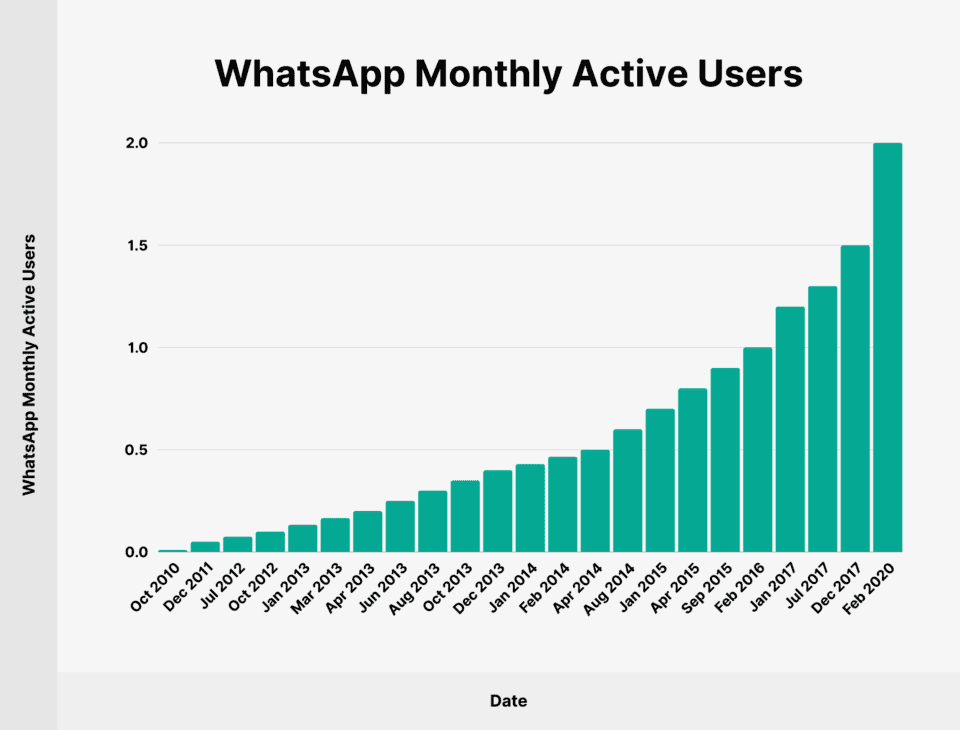
Why Smart Brands Are Moving from SMS to WhatsApp: Ginkgo Retail’s Game-Changing Integration
Good communication with your customers is necessary if you are running an online business. Quick responses to customer queries and, above all, personalized responses get you customer loyalty. This will benefit sales and help generate good revenue. Now the question arises of the channel through which a brand can communicate with customers, e.g., via:
- SMS
- Email,
- Phone calls
- In-app chat
- Social media platforms, i.e., Instagram, Facebook, TikTok
- Messaging apps, i.e., WhatsApp, Telegram, Messenger.

The SMS Era Is Ending
SMS was once considered the best way of communication, specifically for brand promotions and marketing purposes. As the technology evolved, communication is made more easy and cheaper, which people adopted immediately. This causes SMS to quickly become outdated. SMS has failed to keep up due to rising message costs, limited functionality, and lower engagement rates. As faster ways of communication have been found, the majority of brands are using SMS messaging less as a channel to connect with their customers. Moreover, mobile users with easy access to the internet shift to platforms like WhatsApp, Telegram, and Messenger for day-to-day conversations. Therefore, brands must adapt their communication strategies accordingly.
Here are the main reasons why SMS is becoming outdated, explained in simple language:
Rising Costs
E-commerce brands need to send messages in bulk, sometimes, for which communicating via SMS is expensive. Many telecom providers charge per message, and sometimes, long messages are split into multiple parts, increasing the cost even more. For businesses that want an economical way of communication that stays within their budget, SMS is not a good option.
Low Engagement
People don’t respond to SMS the way they used to. With so many messages coming from unknown numbers, users often ignore or delete them without reading.
Limited Features
SMS is plain and boring. You can’t add buttons, images, videos, or product links easily. It doesn’t support interactive conversations, making it hard for brands to create an engaging customer experience.
No Global Consistency
Sending SMS internationally is tricky. Each country has its own telecom regulations, delivery issues, and costs. This creates headaches for global brands trying to reach a wide audience.
Security Concerns
SMS messages are not encrypted, which means they’re less secure. This puts customer data like order info or delivery details at risk, especially compared to encrypted platforms like WhatsApp.
Not Customer-Friendly
Customers today prefer platforms they use daily, like WhatsApp, Instagram, or Messenger. SMS doesn’t feel personal, and customers can’t easily reply or have conversations.

Brand’s Choice for Customer Engagement
Brands are using WhatsApp for customer communication. With over 2 billion monthly active users globally and rapid adoption across regions like South Asia, the Middle East, and Latin America, it has evolved into a powerful channel for business communication.

For e-commerce brands, WhatsApp offers a modern, interactive, and scalable way to engage with customers. It allows:
Familiar and Trusted Platform
People already use WhatsApp every day to talk to friends and family. Therefore, when a brand uses WhatsApp for customer communication, it feels more natural and trustworthy.
Two-Way Conversations
Unlike SMS, which often feels one-sided, WhatsApp allows real-time chats. Customers can:
- Reply,
- Ask questions,
- or even get updates on delivery details instantly.
Rich Media Support
The most interesting thing about WhatsApp is that brands can send:
- Product images
- Videos
- PDF invoices,
- Tracking links for parcels, by which customers can easily reach the site by just clicking the link.
- Buttons, e.g., brands can ask customers, “Is this your delivery address?” and provide three buttons to click, i.e.
- Yes, it’s correct
- Update address
- Cancel order
This makes conversations more helpful and interactive.
Global Reach with Local Feel
Whether your customer is in Pakistan or from another country, WhatsApp works in the same way. There are no charges for sending WhatsApp messages to international clients, and no delays are made as may happen via SMS. The message is sent instantly through WhatsApp.
Read Receipts and Delivery Tracking
Brands can see when a message is delivered to customers and read by them. Double ick shows the message is delivered, and a blue tick shows it is read by the customer. This improves follow-ups and ensures the customer is kept informed.
Automation and Personalization
Platforms like Ginkgo Retail provide WhatsApp integration for e-commerce, and also help to automate WhatsApp for:
- Order updates
- Address confirmation
- Abandoned cart reminders
- Personalized product suggestions
Safe and Secure
WhatsApp uses end-to-end encryption, making it more secure than SMS. It’s a safer way to send sensitive updates like payment confirmations or delivery info.

Ginkgo Retail's WhatsApp Integration: A Smart Move
Ginkgo Retail, a leading provider of end-to-end retail solutions, by understanding the need and benefits of WhatsApp integration for e-commerce brands, built a WhatsApp Business API integration that transforms how brands communicate. The key features and use cases of this powerful tool are:
Automated Order Notifications
No more missed updates because as soon as a customer places an order, Ginkgo’s system sends:
Order Confirmation
Right after checkout, the customer gets a message confirming their order with all the important details (order number, items, price, and payment status).
Shipping Updates
As soon as the order is packed and shipped, they receive another message with tracking information.
Delivery Notifications
When the package is out for delivery or delivered, they get a final update, so they know exactly when to expect it or that it’s already arrived.
All this happens through WhatsApp, in real-time. Customers stay informed, and brands reduce the volume of support queries. This feature is beneficial because:
- No need for customers to call or email asking, “Where’s my order?”
- Fewer support requests mean your team can focus on other important tasks.
- Customers feel cared for and informed, which builds trust and loyalty
Address Verification Before Dispatch
Address verification before parcel dispatch is very important because if the address is wrong, it leads to delivery failure, due to which the parcel is returned, and brands must spend extra money on parcel returns.
With Ginkgo Retail, brands can send a WhatsApp message asking customers to confirm or update their address before dispatch. For example, the message is sent “Hi! Is this your correct address for order #5678? Reply YES to confirm or NO to update”. This feature alone can reduce return rates by up to 30%, saving both time and logistics costs.
Smart Reminders and Customer Responses
WhatsApp integration for e-commerce brands is also used as a powerful tool for giving customers gentle reminders and getting quick responses. Ginkgo Retail’s smart, logic-based message flows can set up automatic messages for different situations, such as:
- Abandoned Cart Reminders
If a customer adds items to their cart but doesn’t check out, they get a friendly WhatsApp message reminding them to complete their purchase. You can even add a discount code or free shipping offer to encourage them.
Restock Alerts
If a product is sold out and later comes back in stock, customers who showed interest get an instant notification. This helps you grab sales before customers lose interest.
Feedback and Review Requests
After a customer receives their order, you can automatically ask them for feedback or a quick product review. This helps you collect testimonials and improve service by analyzing reviews. The most important thing is that customers can reply to these messages immediately. If they have a question about a product, delivery, or payment, they can just type it in, and your team can answer in real-time. With this feature in place, you can recover revenue that might have been lost. Moreover, brands using WhatsApp reminders have reported up to 25% more sales from abandoned carts.
Scale Your Customer Service
Instead of answering lots of phone calls one by one and emails from customers that are sometimes hard to answer because of time constraints, your support team can manage hundreds of chats on WhatsApp. With Ginkgo Retail’s platform:
- Agents can respond using templates or custom replies
- Assign chats based on category or location
- Manage queries faster with saved responses
- This reduces extra costs spent on the support team and improves customer satisfaction.
Global Reach, One Channel
It doesn’t matter if your customer is in Karachi, Dubai, or London, WhatsApp works the same everywhere. That means you can use a single platform to reach all your customers around the world.
With Ginkgo Retail’s WhatsApp integration, you don’t have to:
- Sign up with different SMS providers for each country.
- Worry about whether messages will be delivered in certain regions.
- Deal with extra costs or technical issues for international communication.
Everything runs from one dashboard; you can send updates, reminders, or promotions to any customer, anywhere, with just a few clicks.
It helps to:
- Save time
- Money
- Give a consistent experience to customers around the globe.

How Brands Use WhatsApp at Every Step of the Customer Journey
WhatsApp integration for e-commerce brands is essential for:
Higher engagement and conversion rates
WhatsApp messages are seen, opened, and replied to more often than SMS or email. According to recent reports:
- WhatsApp open rates exceed 98%, much higher than e-mail and SMS.
- Conversion rates from WhatsApp campaigns are 2x higher
Better Customer Experience
When communication feels smooth, helpful, and human, customers notice. Customers are happier and more satisfied, which reduces the chances of order returns. WhatsApp messages are:
- Easy to read and reply to
- Delivered instantly
- Rich in media (images, videos, links)
Cost-Effective Messaging
Unlike SMS, which charges per message (sometimes even per segment), WhatsApp allows session-based messaging that can cover multiple interactions in a 24-hour window. All without worrying about message length or per-SMS costs.
Brands can send:
- Multiple updates in one session
- Image-based notifications
- Real-time feedback forms
How Brands Use WhatsApp at Every Step of the Customer Journey
Trend # 3: AI assistance for merchants
From the moment the customer first sees the product to repeat purchase, WhatsApp integration for e-commerce by Ginkgo Retail helps brands give customers quick answers, timely updates, and personal attention, all in one channel.
Before Purchase (Pre-Purchase)
- Send promotional alerts
- Answer product questions
- Notify when items are back in stock
While Buying (During Purchase)
- Confirm the delivery address
- Remind me about pending payments
- Ask for delivery preferences
After Purchase (Post-Purchase)
- Share order tracking updates
- Start returns or exchanges
- Collect reviews
Bringing Customers Back (Re-Engagement)
- Send abandoned cart reminders
- Share personalized product offers
- Update loyalty program members
What Brands Are Saying
SMS is fading fast because it lacks the speed, flexibility, and personalization that brands need to stay competitive and survive. Ginkgo Retail’s WhatsApp integration for e-commerce offers brands the perfect tool to make this shift easy and effective. Brands that switched from SMS to WhatsApp for customer communication using Ginkgo Retail’s integration have seen:
- 30% drop in returns due to real-time address checks
- 40% boost in customer satisfaction scores
- 25% increase in sales recovery from abandoned carts.
Written by

Obaid Arshad
A veteran of the e-commerce industry having a diverse experience of 10+ years in the versatile domain of e-commerce. His eminent role in ecommerce management empowered him to benefit the industry with his knowledge, vision and experience.
